- Home
- Helen Humphreys
The Lost Garden: A Novel
The Lost Garden: A Novel Read online
The Lost Garden
THE LOST GARDEN
Helen Humphreys
W. W. Norton and Company
New York London
For Madeleine
Copyright © 2002 by Helen Humphreys
All rights reserved
For information about permission to reproduce selections from this book, write to Permissions, W. W. Norton & Company, Inc., 500 Fifth Avenue, New York, NY 10110
Since this page cannot legibly accomodate all the copyright notices, Acknowledgements constitute an extension of the copyright page.
Library of Congress Cataloging-in-Publication Data
Humphreys, Helen, 1961–
The lost garden / Helen Humphreys. —1st American ed.
p. cm.
ISBN: 978-0-393-32491-4
1. Women’s Land Army (Great Britain)—Fiction. 2. World War, 1939–1945—England—Fiction. 3. Estates, administration of—Fiction. 4. Canadians—England—Fiction. 5. Female friendship—Fiction. 6. Women gardeners—Fiction. 7. Young women—Fiction. 8. Gardening—Fiction. 9. Soldiers—Fiction. 10. Gardens—Fiction. 11. England—Fiction. I. Title.
PR9199.3.H822 L67 2002
813’.54—dc21
2002026308
W. W. Norton & Company, Inc., 500 Fifth Avenue, New York, N. Y. 10110
www.wwnorton.com
W. W. Norton & Company Ltd., Castle House, 75/76 Wells Street, London W1T 3QT
Say this when you return,
“I came by the wrong road,
And saw the starved woods burn.”
RICHARD CHURCH
Nothing will catch you.
Nothing will let you go.
We call it blossoming—
the spirit breaks from you and you remain.
JORIE GRAHAM
Contents
England 1941
Chapter 1
Chapter 2
Chapter 3
Chapter 4
Chapter 5
Chapter 6
Chapter 7
Chapter 8
Chapter 9
Chapter 10
Chapter 11
Chapter 12
Chapter 13
Chapter 14
Chapter 15
Chapter 16
Chapter 17
Chapter 18
Chapter 19
Chapter 20
Chapter 21
Chapter 22
Chapter 23
Chapter 24
Chapter 25
Chapter 26
Chapter 27
Chapter 28
Chapter 29
Chapter 30
Chapter 31
Chapter 32
Chapter 33
Chapter 34
Chapter 35
Chapter 36
Chapter 37
Chapter 38
Chapter 39
Acknowledgements
England
1941
We step out into lamplight and evening opening around us. This felt moment. Our brief selves. Stars a white lace above the courtyard.
We walk the streets of London. It is seven years ago. We didn’t meet, but we are together. This is real. This is a book, dusty from the top shelf of a library in Mayfair. The drowned sound of life under all that ink, restless waves breaking on this reading shore. Where I wait for you. I do. In a moment. In a word. Here on the street corner. Here on this page.
But it is shutting all around me, even now, this moment that I stopped. The story disappears as I speak it. Each word a small flame I have lit for you, above this darkened street.
1
What can I say about love? You might see me sitting in this taxi, bound for Paddington Station—a thirty-five-year-old woman with plain features—and you would think that I could not know anything of love. But I am leaving London because of love.
I wasn’t born in the city, have only lived here for the past ten years, since I left gardening college and came to work at the Royal Horticultural Society. But what is love if not instant recognition? A moment of being truly equal to something. What I recognized in this place, from the moment I arrived here, was something within myself that I didn’t even know was there. Something under the skin, in the blood. A pulse of familiarity. The wild, lovely clutter of London. Small streets that twisted like rivers. Austere stone cathedrals. The fast, muddy muscle of the Thames, holding the city apart from itself; the tension of that moving gap, palpable, felt. I have leaned over the stone balustrade of the Embankment in the dark, the true dark now of the blackouts when even starlight is an act of treachery. In blacked-out London, people, once familiar with the city, bump along the streets, fumbling from building to building as though blind. But I have stood beside the Thames and felt it there, twining beneath my feet like a root.
But this is what can no longer be trusted. Every day the landscape is radically altered. Houses become holes. Solids become spaces. Anything can disappear overnight. How can love survive this fact?
The streets are almost empty. I look up as we drive along the Vauxhall Bridge Road and from between two buildings I see a flicker of green that leads to Vincent Square and the stone face of the Royal Horticultural Society looking down into the Westminster Play Ground. Only yesterday I was there in my life, hurrying back from lunch with Roy Peake. At the corner of the square a Canadian soldier said goodbye to his girl. “So long, sweetheart.” I liked the jaunty ring of it. I had been walking up the steps of the Royal Horticultural Society, listening to Roy Peake prattle on about his “unknown pear.” I think he is secretly hoping he won’t be able to identify it so he can name it after himself. Peake’s Pear. I have to admit it does sound right. Certain. The stumble of p’s like two perfect, companionable, musical notes.
Peake’s Pear. I was thinking this, treading the grey stone steps back to my office, when the voice called from along the square with such confidence I turned right around. I am always envious of confidence. This is why I was first drawn to Roy Peake. He spoke so passionately one day about old local apples, standing in my office doorway, holding an ‘Orange Goff ’ in one hand and a ‘Pigeon’s Heart’ in the other. This was back when his interests were more varied, before the eternal days of the “unknown pear.”
Can words go straight to the heart? Is this possible? Can words be as direct as the scent of roses? A man calls from a street corner and I turn my head to the voice as I would turn to the fragrance of a climbing rose, tangled through an arbour.
I have said my farewells to my fellow boarders at Mrs. Royce’s house on Denbigh Street. I have said my farewells and felt nothing. In the two years I lived there I did not befriend any of them, and even though Mr. Gregory tried to make me like him, I never did. Aside from those I worked with, I have no one else to say goodbye to; but now, as I drive away from where I’ve lived, I feel unbearably sad. There is the street where a magnificent cherry tree grows. I will miss it flowering this year. I will likely never see it again.
I look through the taxi window, unable to not watch the familiar streets reel away from me. The wind sways the barrage balloons tethered above the buildings, and they lean the same way, like boats swinging with the tide, at anchor in the harbour.
Most of the buildings themselves are padded with sandbags around the base. Windows are criss-crossed with strips of gummed paper—a pathetic attempt to keep the glass intact when the blasts hit. But there are more windows gone than not. I have walked by restaurants and public houses, their windows shattered into the street and the patrons eating dinner or standing up at the bar with a pint, as though this is a perfectly ordinary occurrence, as though there have never been windows in this, their local establishment.
There are Air R
aid Shelter placards on most shop windows and buildings. There are queues of children outside the underground stations in the mornings, waiting to secure a space for that evening’s shelter.
I know how to judge the relative distance of an exploding bomb. Those far enough away not to inflict any personal damage make a dull, crumpled sound, like that from a collision between an automobile and a lamppost. The bombs the Germans drop that are close enough to kill emit a strangled whistle, not unlike that of a sort of huge, maniacal teakettle.
I cannot reconcile myself to these changes. I cannot continue adapting to the destruction of the city. London is burning now. In January, eight of the city churches and the Guildhall were destroyed by fire. I could see the smoke from my boarding-house bedroom, swaying against the night sky. I could see the red blossoms of fire blooming along the rooftops.
The taxi winds its way towards the station. Past a row of terraced houses, one suddenly gone out of the middle. Children already clambering over the pile of bricks someone’s home has become. An accordion of staircase poking out of the top of the rubble. A flag of torn curtain fluttering from under a window frame. A looking-glass hanging crookedly on the lone remaining wall. In the distance I can hear the wail of approaching aid.
There’s something indecent about glimpsing someone’s private space after a midnight bomb has shattered it. Flash of wallpaper. The wind shuffling the pages of an open book. All that was not meant for us to see, suddenly all there is to see. Just as the taxi pulls away from this crater of rubble, I see the hand. It pokes out from a pile of broken bricks, fingers curled slightly as though it has just thrown a ball and is waiting to catch it as it falls from the sky. A child’s hand. I see the sleeve of fabric still attached, and then the taxi is past.
I do not know how to reconcile myself to useless random death. I do not know how to assimilate this much brutal change, or how to relearn this landscape that was once so familiar to me and is now different every day. I cannot find my way back to my life when all my known landmarks are being removed. Last week I even became lost in the corner of Bloomsbury where I lived before I moved to Mrs. Royce’s on Denbigh Street at the beginning of the war, to be closer to my office. I was looking for my usual marker that determined where to turn, a four-storey brick house on the corner of a square. The house had become, since last I’d been there, a small hill of brick dust and broken glass.
This is what I know about love. That it is tested every day, and what is not renewed is lost. One chooses either to care more or to care less. Once the choice is to care less, then there is no stopping the momentum of goodbye. Each loved thing slips away. There is no stopping it.
We have arrived at Paddington. The sun shivers along the glass in the station roof.
So long, sweetheart.
2
One of the worst things about the war has been the paranoia about being invaded by the enemy. This has been directly translated into making travel as difficult as possible for all civilians, on the odd chance there might be a spy among us, sent ahead to gain information on where to invade first. To confuse these spies, all the signs in rural England have been removed. No markers for villages or towns. No signs at the train stations. Children have been strictly cautioned to never answer any stranger who begs for directions, and there are posters up everywhere warning that “Careless Talk Costs Lives.” No one seems to have considered that a spy might come equipped with a map.
It is difficult to set out for somewhere new. The concession the railway has made to people such as myself, who are travelling to an unfamiliar location, is to attach a small, practically invisible label bearing the station’s name to the base of a lamp standard at the far end of the platform. Unless you are in the first carriage and it is daylight and you lean half your body out of the window and have remarkably good eyesight, the label is impossible to see. It is completely impossible at night, when all the lights in the train are routinely turned off and the darkened carriage-loads of people hurtle through the unknown landscape to certain geographical distress.
The war has made us all nervous, jittery rabbits. I look on my fellow train travellers with sympathy. No one had expected the war to last so long, and now, with Hitler poised to invade Yugoslavia and Rommel launching a desert offensive, it seems more widespread and endless than ever—more hopeless than ever. The effort of the citizenry to remain alive and alert to all possible danger has transformed us all into twitchy, apprehensive, exhausted creatures.
“I was counting,” says the woman opposite me to her husband. “But now I can’t remember if it’s five or six stations we’ve passed.”
I was counting too, and when she says this, I immediately can’t remember either. The train plunges further southwest towards the Devon countryside, and I realize that probably no one in this carriage has the faintest idea where we are.
The man doesn’t reply to his wife’s irritation. He is ignoring her. This is how I know they are married. He turns his newspaper over, and I read the front page of The Times. “Half Abyssinia Conquered” one of the headlines says, and then, under that, I spot something that makes me lean forward in my seat.
“We announce with regret that it must now be presumed that Mrs. Leonard Woolf (Virginia Woolf, the novelist and essayist), who has been missing since last Friday, has been drowned in the Sussex Ouse at Rodmell, near Lewes.”
I think of the letter I was writing in my head this morning to Mrs. Woolf. This felt moment. Our brief selves. All the letters I write in my head. All the letters never perfect enough to actually send. And now I’ve missed my chance to let her know how much I have loved her books, and to tell her that one evening, seven years ago, I think I followed her through the streets of London. Now the answer to the question I was always on the brink of asking—Was it you?—will never be known to me.
I remember that the moon was up, and that when I crossed Tavistock Square the gardens were flooded with light. It took me a while to even notice the tall shadowy figure of a woman, walking ahead of me through the gardens of the square. But when I did notice her, it was as if I also noticed everything else for the first time. The June air was soft on my skin, and the watery flume of traffic streaming by in the Southampton Row was suddenly hushed. The air smelled of flowering trees and that scent was the scent of possibility, of hopefulness.
There is a vocabulary to existing, to taking up living space in the world, that cannot be translated over the chasm of death.
I saw the tall, slightly stooped figure of Virginia Woolf walking through the night square in a flowing dress the colour of dusk. What words can I possibly use to truly cover this experience?
A mauve dress. The colour of lilacs. It hangs around the body, drapes it like smoke, ghostly in the rise of moonlight over the London houses. We were alive. We were on fire. I sit in this rocking train carriage, years later, words floating around me, wisping down in thin, grey threads. Nothing I can hold in my hands. Smoke, these words are smoke.
I rest my head on the window. I can see a faint image of my face in the glass, through it the countryside churns a soft green. Strange to see fields again, trees knotted above water, a kingfisher over the river. No ruined buildings, air thick with masonry dust. Strange also to see my face again, in the train window. I don’t often gaze at my reflection.
When my mother knew she was dying, she made me remove all the mirrors from her house, stack them in the conservatory, glass to the wall. “I don’t expect you’ll want them,” she said.
I lift my head from the window. I have left her too, my dead mother. She belongs with the burning city, the ash and broken stone of London. Her house was bombed while she was in hospital. That house in Richmond I grew up in. “I wish I’d been there,” she said when I told her.
A few rows ahead of me in the carriage I can see the uniformed arm of a soldier. The rest of his body is hidden by the seat. I suddenly feel completely miserable. This is all I have—a carriage full of strangers, a landscape disarmingly lush and unfamiliar, m
emories that bring no comfort.
3
There is no one to meet me at the small country station, even though, when I first made the arrangements, someone had been promised. Another example of the rampant unreliability this war has wrought on even the simplest of promises. “There’s a war on,” people will say to explain away almost any behaviour.
I was told the estate was not far from the train station, and if my luggage were not so heavy, I would attempt to walk the distance. But the weight of my books necessitates transport. I do not have much for being thirty-five years on this earth: mostly books, a few photographs. My clothes are few. But my books, my books are so many it looks as though I am on my way to open a small lending library.

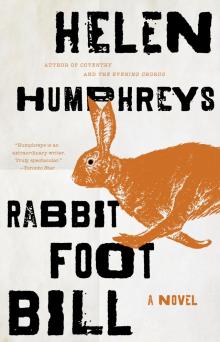 Rabbit Foot Bill
Rabbit Foot Bill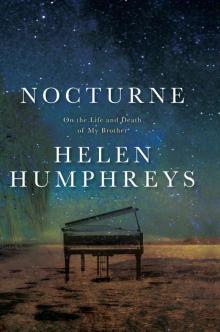 Nocturne
Nocturne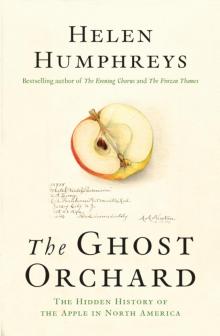 The Ghost Orchard
The Ghost Orchard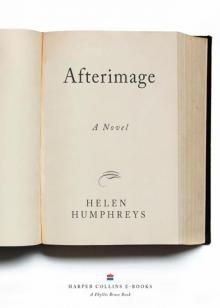 Afterimage
Afterimage The Frozen Thames
The Frozen Thames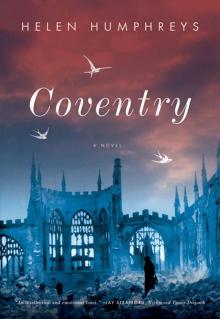 Coventry: A Novel
Coventry: A Novel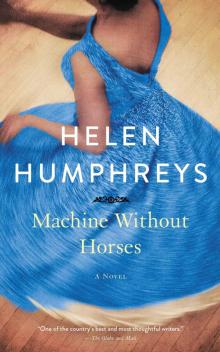 Machine Without Horses
Machine Without Horses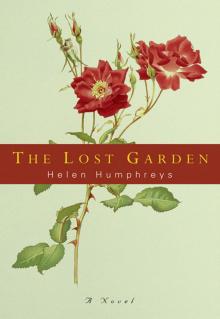 The Lost Garden: A Novel
The Lost Garden: A Novel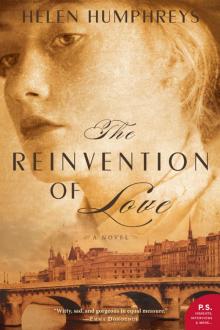 The Reinvention of Love
The Reinvention of Love Helen Humphreys Three-Book Bundle
Helen Humphreys Three-Book Bundle